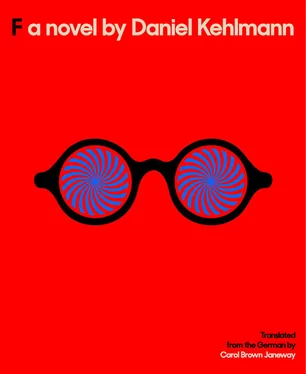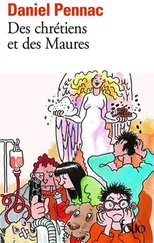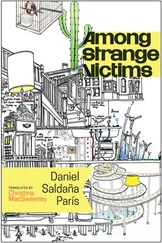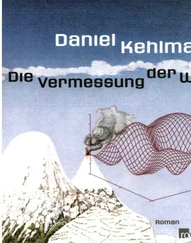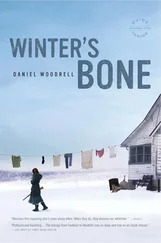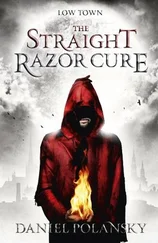At first she didn’t want to go, but he talked her into it. It couldn’t be all that bad. He’d always had luck until now.
I don’t know what he looked like. There is no photo of his face.
My father’s father wasn’t even twenty. He survived the first year of the war, thousands of hours in churned-up mud, barbed wire, grenades, the whistling in the air, the flying shrapnel. When he got leave from the front and saw his wife and tiny son, they seemed like strangers to him. He survived for another year. During that time he became so accustomed to the idea of his own death that he no longer believed it could actually happen. But then a bullet hit him, boots trampled on him, and out of sheer force of habit he wondered how he would get out of it this time. He suffocated in the filth and never came back.
My father’s grandfather lived for the theater and never got cast in the right roles. Never Hamlet, but Laertes, never Mark Antony, but Cicero, never Romeo, but Mercutio. He never stopped telling his two sons and his two daughters about the sacrifices that must be made for art, but none of the children had any talent. As the years passed, he hoped for King Lear and Prospero. His older son died of the Spanish flu, his younger son married a Jewish girl, which he didn’t like, but he didn’t have the strength to fight it. The older daughter married a teacher, the younger daughter stayed resentfully at home and cooked for him and his wife.
He saw his first film. Pale figures rushed around on a white screen. He didn’t understand what everyone was laughing at, all he saw was ghosts, and the thought that they would now be able to watch people throwing cakes at one another’s faces long after they were actually dead struck him as horrifying. A little man with a mustache, a huge fat man, and a clown with his mouth turned down grotesquely — it’s the end of the world, he thought. It may still seem to exist, but it’s all an illusion, like these images.
From that day forward he never got out of bed again. Even the outbreak of war left him indifferent. When his son came in uniform to say goodbye, he managed to look as dignified as the situation demanded. After all, he wasn’t an actor for nothing.
My father’s great-grandfather was a doctor, though not a good one. He had only studied medicine because his own father had been a doctor. He had a small practice, a lot of patients died on him, except for those his wife could handle; she was more intelligent than he was. She often knew which cures worked. Then she died on him too. To have someone to look after the children, he married again. The new wife made him sad, and even more patients died.
Whenever he had the opportunity, he told people that when he was a young man, he’d met Napoleon. Actually all he’d seen was a coat billowing out over the rump of a horse, and a hand in a white glove. When he was finally able to settle down again, it occurred to him that perhaps the great commander had killed fewer people than he himself, the bad doctor, had. Then his second wife died too. His final years were completely happy.
The doctor’s father, also a doctor, had the gift of being able to calm the sick while he talked to them. Mostly he could guess what they were suffering from. He busied himself with Mesmer’s experiments and learned how to put a suffering patient into a magnetized sleep. When his son also became a doctor, he was delighted. His daughter would also have liked to study, she was intelligent and gifted, but he had to forbid it. To even things out, he found her a good husband, who worked hard and didn’t hit her. At the age of sixty, he went to bed, breathed out, and never came back.
A bullet cost his father a hand. He was dark-skinned, no one knew why, his mother had brought him up in poverty somewhere, all on her own. He became a soldier, because the recruiters thought a black man would be stronger than a white man. He marched a lot, was sometimes promoted, sired three children along the way, all of them white. Finally a bullet struck him in the back, he choked on his own blood, and never came back.
His father had gone to England, having signed on as a cabin boy for the crossing. He saved a little, and tried his hand at being a trader but didn’t have much luck. Once he fell into conversation with a young Frenchman who was visiting the stock exchange in London in order to write about it. The man was puny and thin, but sly, with eyes that captured everything like lightning and an intellect more powerful than any he’d ever encountered before. If you were like that, he thought, you could do anything, things wouldn’t be so hard and the world so full of resistance. As they said goodbye, he asked the stranger his name. Arouet, he replied, and immediately went on his way, because the man had bored him.
He never got over this encounter. He was tired. He still managed to open a little shop near Fleet Street that sold pitchers, keys, and odds and ends, and marry a woman he didn’t like, and father a child; it seemed to him that the strength for this had not been his but had come from the son, who was striving so uncompromisingly to arrive in the world. When the boy was born, he had dark skin, but he himself was white as snow, and so was his wife, which meant she’d cheated on him. He screamed, she cried, he roared, she swore, he called out to God, she did too, and with the last of his strength he pushed her away. His stomach was already hurting badly as he did this, a month later he was dead and never came back.
His father went to sea. The sadness of his forefathers was deep in him. In Hamburg harbor he lay with a woman whose name he didn’t know, nor she his; he really didn’t like any women, but this one looked like a man, which helped. He signed on as a ship’s cook on a boat headed for India, but it sank three weeks out from port. Fish stranger than any he could have imagined ate his flesh, his bones turned to coral, his hair to sea grass, his eyes to pearls.
His father was dark-skinned. He was the son of a landowner and a maid who came from Trinidad and was as black as night. Nobody paid attention to him as he was growing up, which was perhaps his good fortune, but when he was fifteen his father gave him some money and he left. He didn’t know where he was going, one place seemed just like another, and he had no plans. Time, he thought as he leaned his head against the window of the stagecoach, was strictly an illusion. Others before him had crossed these hills, others would cross them after him, but they remained the same hills and the ground was the same ground. And fundamentally the horses were the same horses, where was the difference? As for people, he thought, the differences really aren’t that great either. Might it be possible that we’re always the same, in ever-changing dreams? Only the names deceive us. Set them aside and you see it right away.
He had himself set down in a small village. The inhabitants found it amazing that he was black, they’d never seen such a thing before. At first he worked as a farrier, then as a horse doctor; he had an instinct for their bodies and what hurt them. A blessing hung over him. The animals trusted him and people didn’t hate him. He married and had seven children; some died at birth, others survived, and to his surprise they were all white. God sends us on mysterious paths, he said to his wife, and we must walk those paths without complaint.
And so he grew old. He was content, the only one in the line of his ancestors ever to be so. One rainy afternoon he sank to his knees in front of the house, looked around with curiosity, closed his eyes, laid his head back as if to listen to the earth beneath him, and never came back.
His father, the landowner, was an alchemist who never succeeded in transforming dross into gold, but this was in no way surprising, since no other alchemist ever did either. He lived in a drafty manor house, sired more than a dozen children with the maids, among them a black girl from Trinidad who could both mesmerize and heal. He never married. He also spent a lot of time contemplating whether he should be Catholic or Protestant. The black girl, on the other hand, thought often of the place from which she came: she remembered its warmth, she remembered rain that was as light as air, she remembered the power of the sun, and she remembered the fragrance of its plants. She tended her dark son, she kissed and hugged him whenever she could, which was not often, for her work was hard, and when he finally set off on his own road, she knew that he would not come back.
Читать дальше
